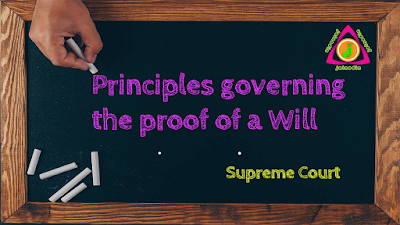Thus, from the tenor of the Will read with the document dated 30 September, 2000, it appears that Pravin had equal love and affection for Ashok and Dipti. However, Pravin was of the opinion that he had spent sufficient sums of money on Dipti to give her a comfortable life and hence he did not think it necessary to leave much of his properties to his daughter. However, it is not that Dipti was totally deprived by Pravin in the Will. As noted, 9% Relief Bonds with face value of Rs.31,00,000/- and Maturity Value of over Rs.48,00,000/- were left for Dipti. It has also come out from the evidence on record that Dipti and her husband are both well established in U.S.A. and between the two of them, they earn over 1 million U.S. dollars per year. This factor is also likely to have played in the mind of the testator in deciding that it was not necessary to leave much for Dipti who was financially more than secure. Just because the bequests in favour of the testator's two children are not equal and may even be disproportionate, the same in my view, per se would not amount to a suspicious circumstance or make the Will unnatural. A Will is generally made when the testator desires to alter the natural course of succession. As observed by the Apex Court in the case of Ramabai Padmakar Patil (Dead) v. Rukminibai Vishnu Vekhande (supra), a Will is executed to alter the natural mode of succession and by the very nature of things it is bound to result in either reducing or depriving the share of a natural heir. If a person intends his property to pass equally to his natural heirs there is no necessity at all of executing a Will. It is true that the propounder of a Will has to remove all suspicious circumstances. Suspicion means doubt, conjecture or mistrust. But the fact that the natural heirs or some of them have been excluded or a lesser share has been given to them, by itself without anything more, cannot be held to be a suspicious circumstance. [Para No.31]
In S. Sundaresa Pai vs. Sumangala. T. Pai (supra), the Hon'ble Supreme Court observed at Paragraph 7 of the judgment inter alia as follows:
"The uneven distribution of assets amongst children, by itself, cannot be taken as a circumstance causing suspicion surrounding the execution of the will. One son was given bulk of immovable properties; another none; another half share in one immovable property; other half being given to the plaintiff and another daughter and husband were given nothing. It is also not in dispute that some properties were given in gift to the plaintiff by her mother during her lifetime. There was nothing unnatural. "[Para No.51]



